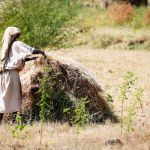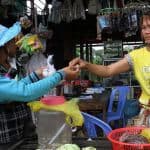Crowdfunded Farming: Connecting Investors with Smallholders in Indonesia
With its abundant fertile soils, Indonesia’s agriculture industry is one of the main contributors to the country’s economy, accounting for more than 13 percent of GDP, employing 41 percent of the workforce and providing income for the majority of Indonesian households. While this sounds promising for individuals in the agriculture sector, in reality, Indonesian farmers are more than 2.3 times poorer than the general population. Furthermore, the country’s smallholder farmers tend to focus on domestic products such as rice, soybeans, fruits and vegetables, leaving the higher-value export products such as palm oil, rubber, cocoa and coffee to the larger, state-owned plantations.
Smallholder farmers often struggle to raise sufficient capital for their farms, as the banking system is difficult for them to access. This is due to most banks requiring collateral and having a lengthy and complicated application process and unfavorable rates. Because of this, many farmers get into debt after borrowing from loan sharks or other middlemen who take advantage of their plight with high interest rate loans.
To address this problem, two social entrepreneurs, Yohanes Sugihtononugroho and Risyad Ganis, decided to set up Crowde in 2016. This digital crowd-investing platform, where I handle product development and sales, aims to help Indonesian farmers raise working capital from the public through profit-sharing. The public can invest as little as US$1 to support a range of different agricultural projects. This includes raising livestock, growing fruit and vegetables or trading commodities.
To date, Crowde has partnered with 300 experienced and trusted farming communities, allowing the public to browse various projects on our web platform and choose the one that matches their risk profile, investment period and preference. Once investors have selected the project and transferred funds through Crowde’s e-payment portal, they can monitor the projects through the online dashboard. At the end of the project, the crops are harvested and the investors receive a share of the profits.
For example, last year, Pak Gondrong, a 40-year old chili farmer in West Java, came onboard Crowde to raise funds for his farm. Although he initially could not understand technology, he succeeded in raising US$1,100 from 10 investors. He invested these funds to help increase the productivity of his chili farm. After three months, he made 15 percent profits from the investment, which was shared between himself and the investors. Gondrong is now upgrading his skills to better understand technology and become an agropreneur. He is now able to successfully manage his farming, finance and marketing efforts.
To date, Crowde has supported some 3,500 farmers in Indonesia, receiving a total of more than US$1 million from more than 8,500 investors. Three-quarters of our investors have become repeat investors, ploughing funds back into the platform to support other agricultural projects after receiving profits from their initial investment.
But while the platform is now gaining traction, at first it was not easy to teach farmers how to use the system, or to provide the information necessary to attract investors. We solved this problem by initiating pilot projects with one farming community that spanned several villages. Careful hand-holding with the farmers ensured that they uploaded sufficient information to demonstrate transparency, accountability and responsibility. Once these farmers were successful in raising funds and sharing the profits, they recommended Crowde to other farmers, which helped to grow the community.
Another challenge was the need to educate the public on crowdfunding. The platform had to convince investors that projects are genuine and that their investments could potentially result in good returns. We did this by creating engaging videos that told personalized stories about the farmers and their agricultural projects: Once people felt inspired, they became more likely to invest.
It has also been necessary to maintain regular communication with the investors throughout the project and build strong relations, so they can see the impact of their investments and be more likely to become repeat investors. Meeting government regulations has presented an additional challenge, as crowdfunding is still relatively new in Indonesia. Our team continues to work with the authorities to ensure that our technology platform follows necessary guidelines.
Crowde believes that crowdfunding is an impactful way to serve the low-income market. Compared with government funding, where there is often little monitoring of the project, crowdfunding ensures that both the investors’ and recipients’ goals are aligned. In addition, each individual investor can choose how much they wish to invest, based on their available resources. Because the owner of the project knows the investors involved are likely to keep tabs on its outcome, there is additional social pressure to run the project effectively, and this improves the chances of success.
In 2017, Crowde was named as one of the top teams of the DBS-NUS Social Venture Challenge Asia competition, taking home US$15,000 as a cash prize. In addition to investing this into growing the company further, Crowde will leverage the exposure from this competition to boost our branding regionally, and we will reach out to potential partners to help scale the business.
Moving forward, the team at Crowde aims to further support farmers by linking them up with relevant merchants who will buy their products. We also will establish both online and offline channels to help connect farmers with customers directly, resulting in higher profits.
Heri Siswanto handles business development, product development and sales for Crowde, a crowdfunding platform based on equity and lending to support agriculture in Indonesia.
Photo by Peter Nijenhuis via Flickr.
- Categories
- Agriculture, Investing, Technology



